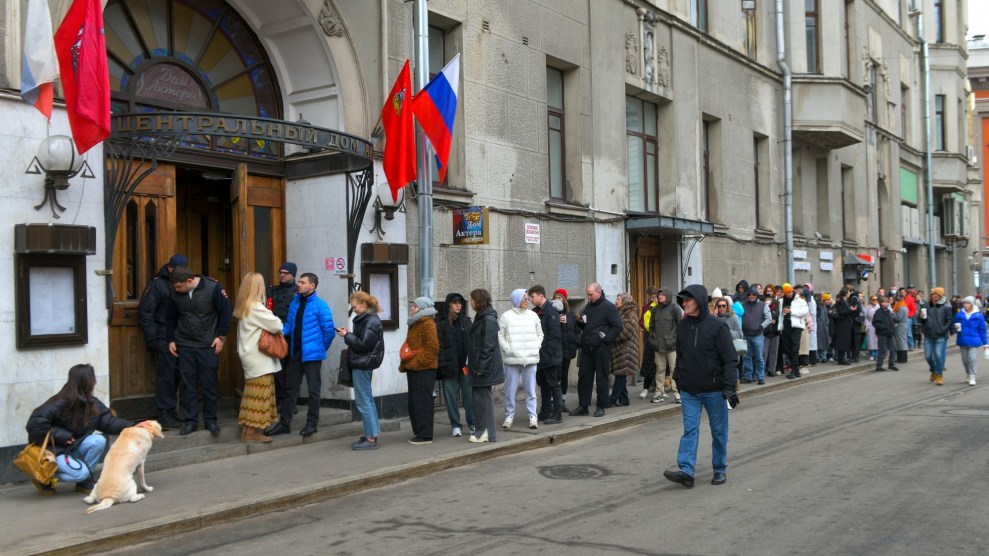
Voters line at a polling station at noon in Moscow.AP
Vladimir Putin’s fifth term as Russian president is guaranteed. Opposition leaders have been imprisoned, exiled, and killed. Criticism of Putin and the war in Ukraine has been outlawed. Only rubber-stamped candidates appear on the ballot.
Russia’s presidential election is a farce. But that didn’t stop critics of Putin from showing up at the polls in large numbers in major cities on Sunday, the last day of voting, to register their discontent in a rare display of public protest.
Inspired by a call from opposition leader Aleksei Navalny—who died under mysterious circumstances last month in an Arctic prison—opponents of the Russian autocrat arrived at polling places in a coordinated action called “Noon Against Putin.” Navalny’s widow, Yulia, appeared at the Russian embassy in Berlin to cheers and urged Putin’s critics to write in the name Navalny, spoil their ballots, or leave in silent protest. As the New York Times reported:
Before he died last month…Navalny had called on supporters to go to polling stations at midday on Sunday, the last day of the three-day vote, to express dissatisfaction with Mr. Putin…The nature of the midday initiative makes it virtually impossible to estimate just how many of the people who came to the polls at that time came with the intent of registering a protest. But around 11:30 a.m. Moscow time, the street outside the polling station on Brodnikov Lane, just south of the city’s famed Tretyakov Gallery, was relatively empty. Suddenly, at noon, a long line formed…Despite the risks, all five voters consulted by The New York Times outside one polling station in Moscow said that they came to express their support for Mr. Navalny.
These symbolic demonstrations will not impact the final result, and, in many ways, they show how weakened the Russian opposition has become under Putin’s iron-fisted rule. But they follow a storied tradition of civil disobedience across the world in the face of unjust voting processes.
When John Lewis led the Bloody Sunday march in Selma, Alabama, in March 1965 to protest the widespread disenfranchisement of Black voters in the Jim Crow South, he said civil rights activists were hoping “to dramatize to our nation and to the world our determination to win first-class citizenship.”
The context is far different, but that’s what Russian protesters—no matter how demoralized or beleaguered—did on Sunday.










